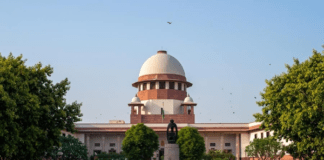Learn how will laws in India differ by religion, why a will matters, and how to draft one. A simple legal guide for every Indian citizen.
A guide to understanding how wills function in India—and why they matter for every community.
A will is more than just a document—it’s peace of mind. It lays out how your property and assets should be handled after your death, preventing confusion, disputes, and lengthy legal battles. In India, writing a will is legally recognized and strongly encouraged. However, its interpretation and implementation vary significantly depending on the religious community of the person making it.
While the Indian Succession Act, 1925 governs wills for Hindus, Christians, Parsis, and others, Muslim wills are largely regulated by personal laws. Let’s break down how wills work across different communities and why having one is not just wise—it’s essential.
🧾 What Exactly Is a Will?
A will is a legal declaration by a person, made during their lifetime, regarding the distribution of their property after death. It comes into effect only after the person passes away. This document can also include the appointment of executors—people responsible for ensuring your wishes are carried out.
The Indian Succession Act, 1925 primarily governs wills in India. For non-Muslims, this law lays down the process of drafting, modifying, and executing a will. It also clarifies how to resolve disputes if any arise.
⚖️ How Wills Differ Across Religions in India
1. Hindu, Christian, Parsi, and Others (Under the Indian Succession Act)
- These communities are governed by the Indian Succession Act.
- The act allows for complete freedom in the disposition of property.
- Registration of a will is not mandatory, but recommended.
- Wills can be revoked or altered anytime during the lifetime of the testator (person making the will).
- Witnesses: At least two are required to verify the will.
2. Muslim Personal Law
- Muslims are governed by Sharia law and not the Indian Succession Act.
- A Muslim can will away only one-third of their property without the consent of heirs.
- The remaining two-thirds must be distributed according to Islamic inheritance laws.
- Oral wills and privileged wills (e.g., in the case of soldiers) are also recognized under Muslim law.
📜 Why Is Drafting a Will Important?
- Avoids Family Disputes: Clearly outlines your wishes, reducing conflicts.
- Protects Vulnerable Heirs: Ensures children, spouses, and dependents are cared for.
- Peace of Mind: Provides reassurance that your assets will be used as intended.
- Legal Recognition: Courts often give precedence to a validly executed will, especially if uncontested.
✅ Essential Components of a Valid Will
- Testator’s Details: Full name, age, address.
- Declaration: Stating that the will is made voluntarily and while of sound mind.
- Details of Assets and Beneficiaries.
- Executor’s Appointment: A trusted person to execute the will.
- Witness Signatures: Minimum of two, not beneficiaries.
- Date and Signature of the Testator.
📌 Should a Will Be Registered?
Though not legally required, registering a will under the Indian Registration Act adds an extra layer of authenticity and can help prevent future disputes. It can be registered with the local sub-registrar office where the testator resides.
🧠 Final Thoughts
Whether you’re Hindu, Muslim, Christian, or belong to any other community, understanding the specific will laws that apply to you is crucial. A well-drafted will ensures that your voice is heard even after your passing—and your loved ones are protected.
📽️ Watch more legal explainers on The Legal Observer YouTube Channel
For more legal guidance and the latest updates:
- Visit The Legal Observer
- Explore insights from The Legal Observer – National News
- Check out The Legal Helpline





